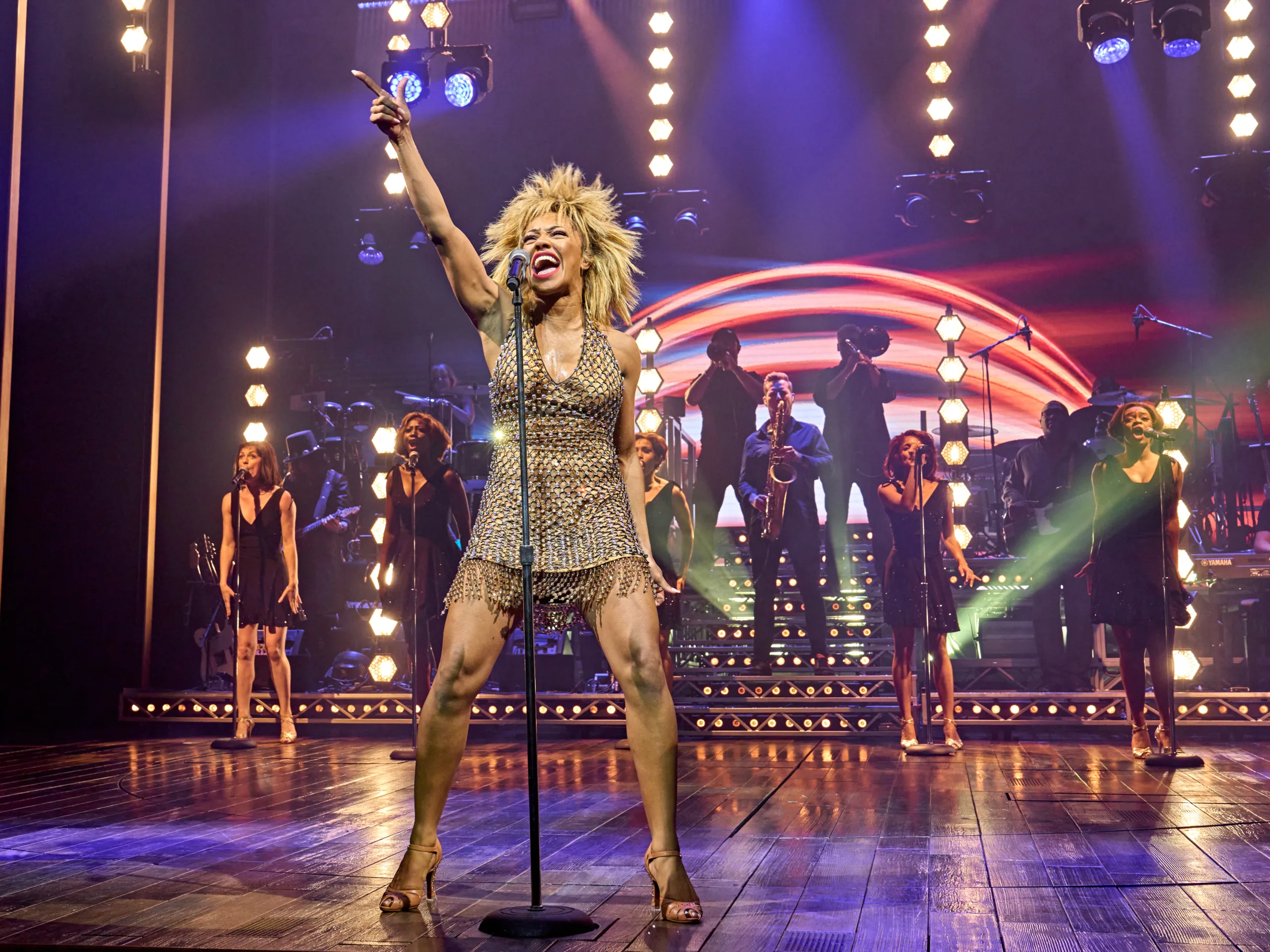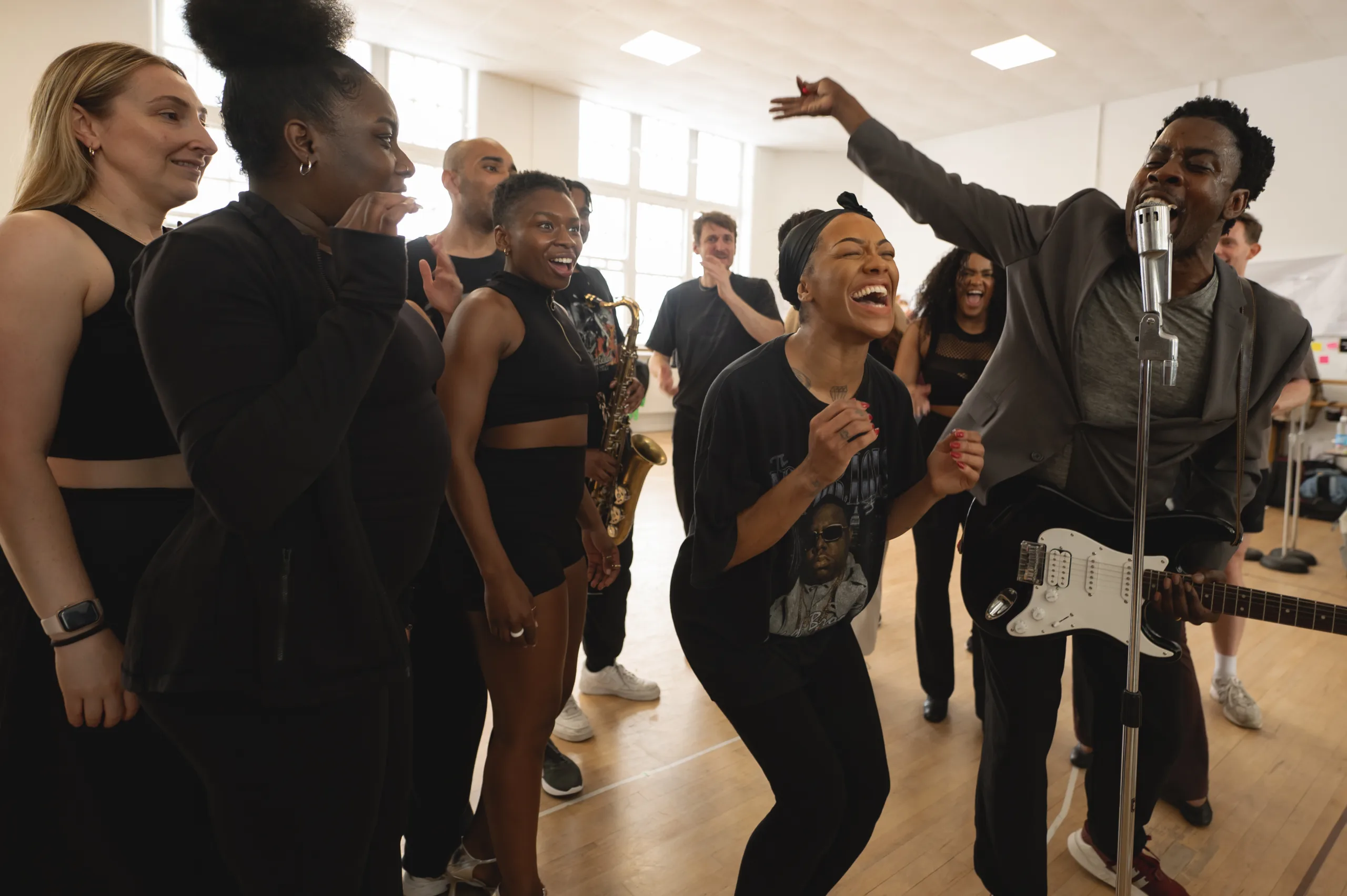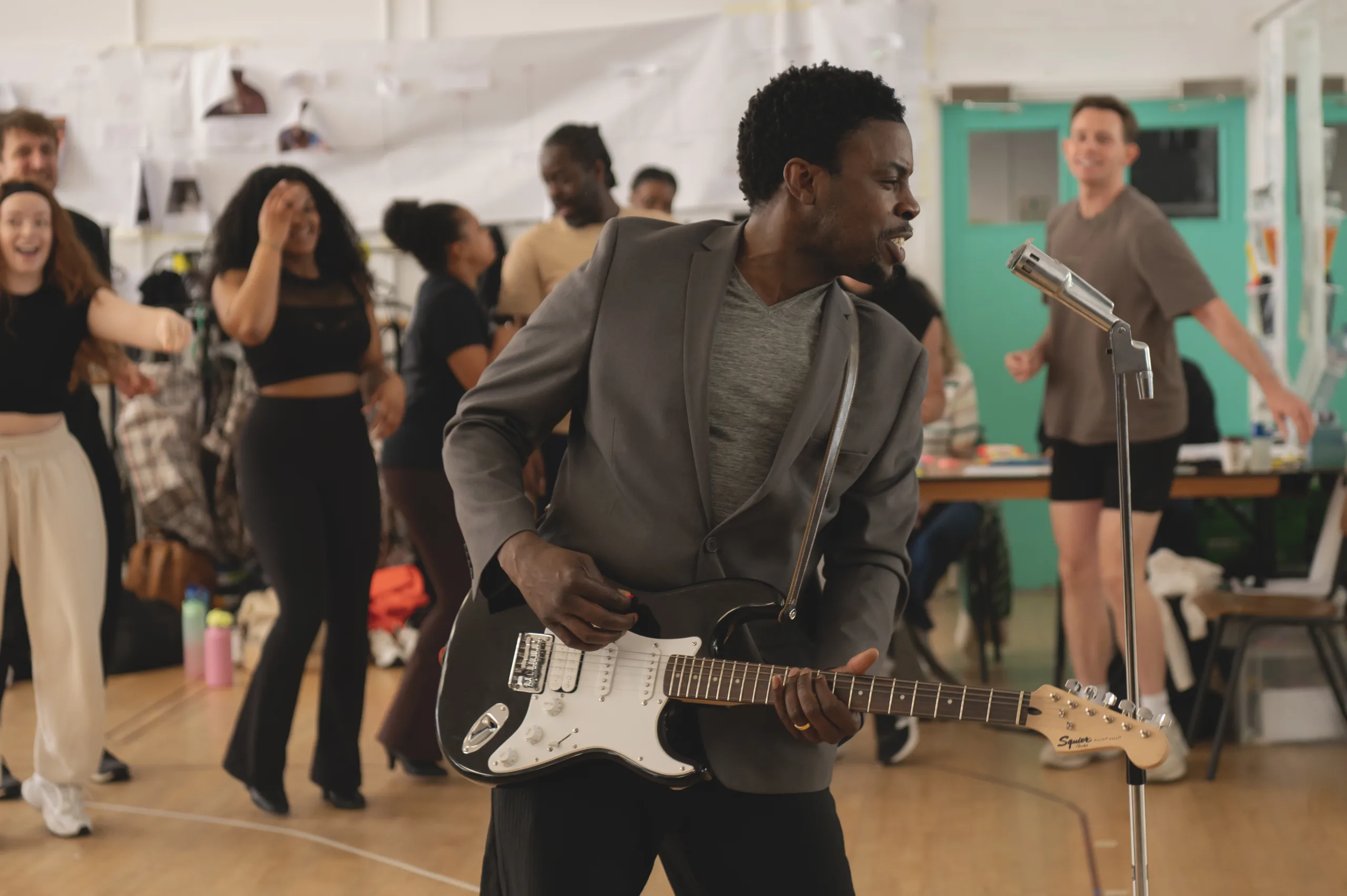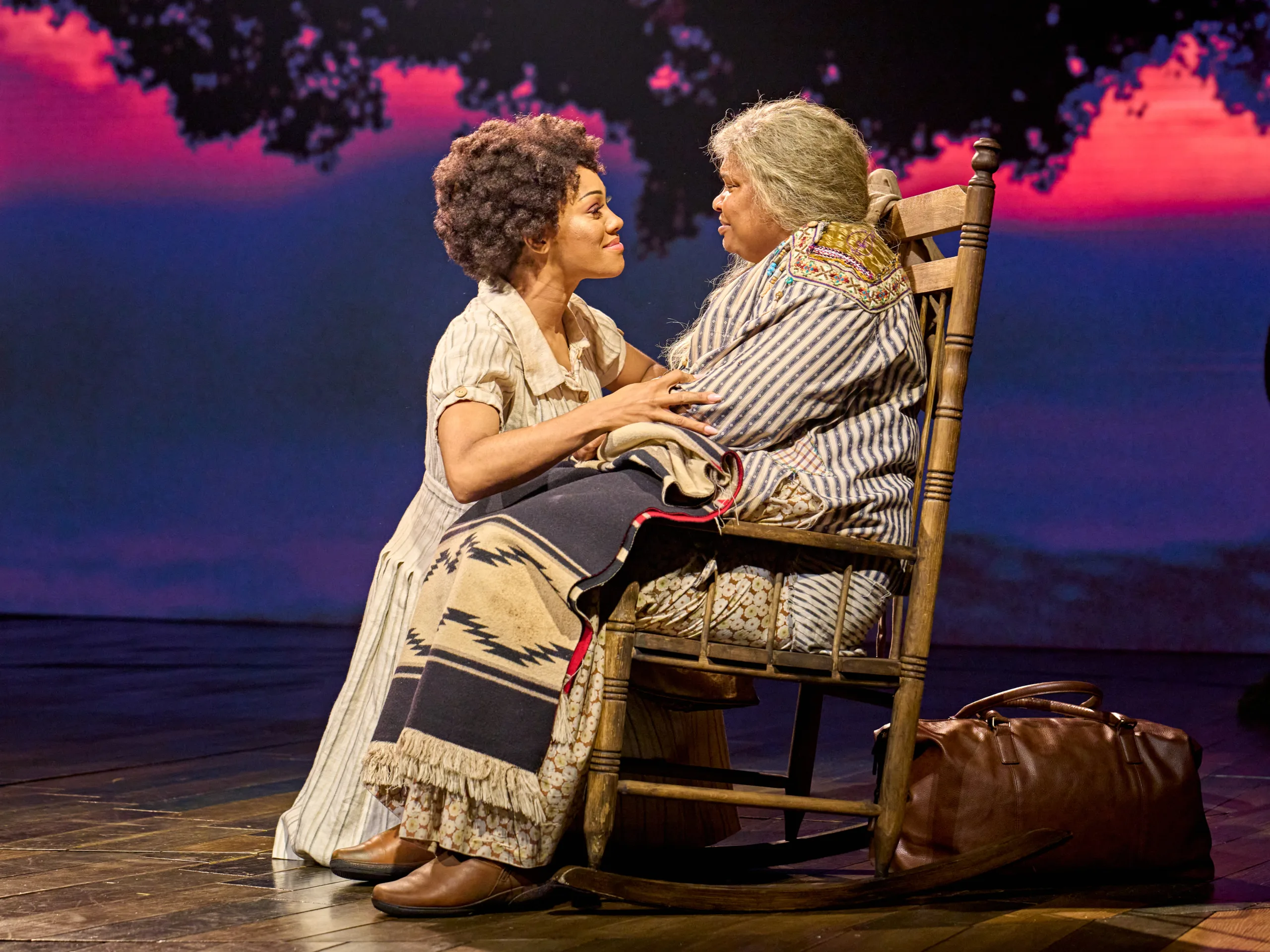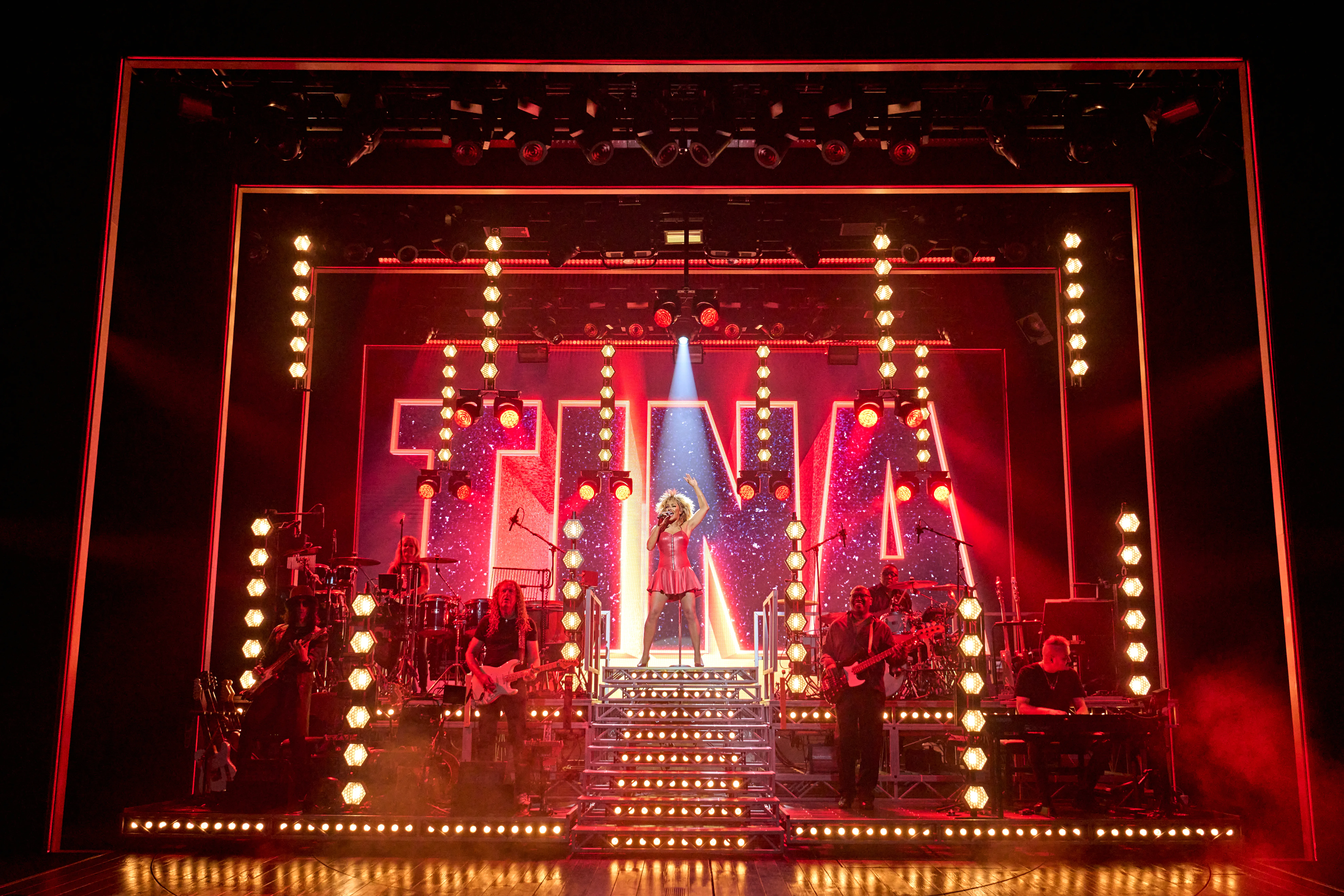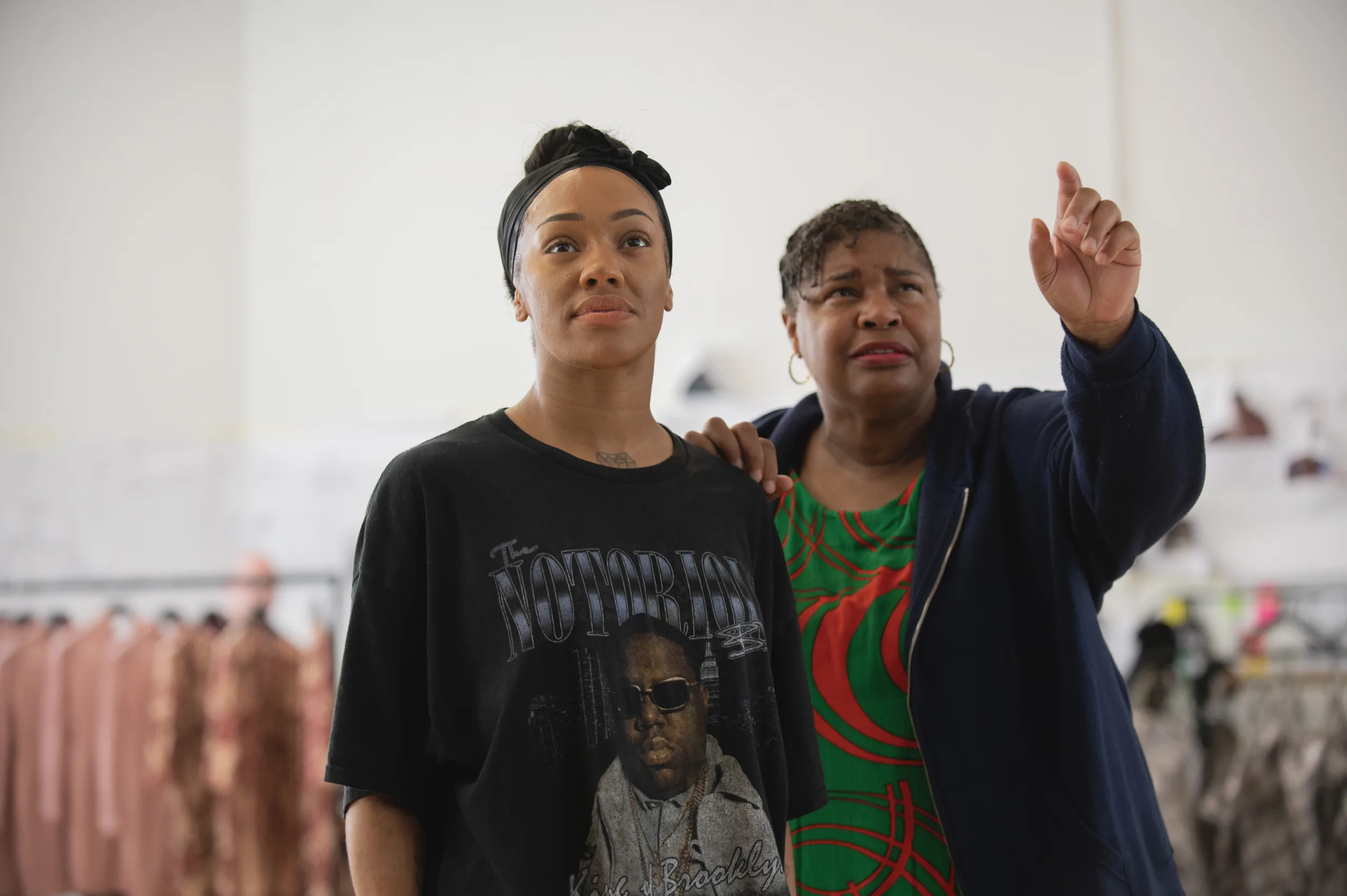Behind the legend is a life, filled to the brim with its own triumphs and challenges, beset by incandescent highs and lows, and mediated through a soul that absolutely refused to lay quietly. Everybody knows Tina’s music, but not everybody knows her story: the rise of a small-town girl to the sound that made rock history across the globe.
Celebrating its SIXTH year on the West End at the Aldwych Theatre, The Tina Turner Musical is an unflinchingly human portrayal of a superstar. Produced in conjunction with Tina herself, the show has now also poignantly shifted from a rhapsody, to the legacy, of a life that was, in every way, inimitable.
Tina is, was, and will always be, simply the best; forever stuck on our hearts.
Karis Anderson: Tina Turner
Getting to play Tina Turner onstage, for Karis Anderson, is never a pressure but purely an honour. ‘I always say Tina’s like a smile,’ Karis describes, ‘she’s universal to everybody. She inspired the world through her music, story, and unconquerable spirit, so getting to be even a small part of keeping that legacy alive is the best feeling.’ Not shying away from the challenges of representation, however, Karis admits that it is a beast of a role, not least because Tina’s an anomaly, a one-of-a-kind force who cannot be copied. Embodying her, therefore, is an act of mindset, of finding meaningful human connections, and capturing an essence that meshes with herself. ‘That’s the most authentic way I can bring her out onstage,’ Karis asserts, not as a facsimile, but a true incarnation.
Despite eminent success, Karis’ career didn’t begin in theatre, though performing was always the dream. When her time in a girl-band ended, she took a gamble that traded the music industry for the stage. Securing an agent, she recalls: ‘I walked into her office and said: ‘I’ve got no formal training in musical theatre, but if you take me on and believe in me, I promise I’ll be your West End leading lady’ – and here we are.’ With experience becoming her training, Karis graduated from her original casting as an Ikette, to first-cover Tina, to the show-stopping headliner herself a year later. But achievement didn’t necessarily stop perfectionism and imposter syndrome from creeping in.
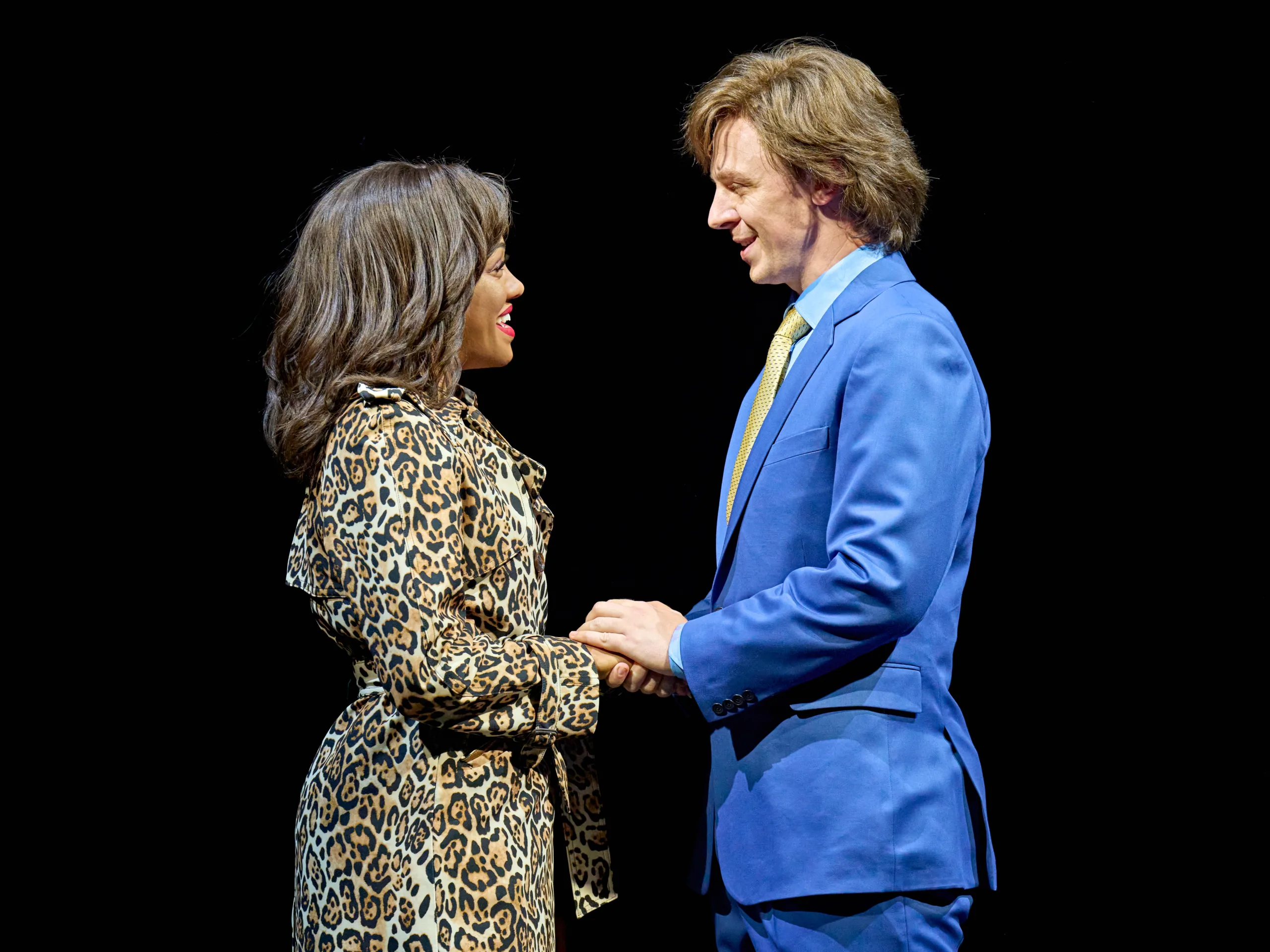
When you’re afraid to try something new, or holding yourself back from wanting to execute anything, in case it doesn’t match up to your aspirations, Karis relates, that can be really restricting. Luckily, in theatre, you know you’re never alone. ‘It’s always a team effort. A dream team and an audience.’ You only get one shot, and when you’re working on a show that’s never the same configuration twice, you soon learn there’s no such thing as ‘perfect’ anyway.
Tina was, and is, a force to be reckoned with, and having people like Erwin Bach in consultation has truly helped Karis feel supported and confident in the role. ‘When you’ve literally got Tina’s team saying you’re the closest thing to Tina they’ve seen …that’s mind-blowing for me. That’s been my biggest achievement so far: trusting myself to do her soul, story, and spirit justice.’
For anyone looking to enter the theatre industry, Karis advocates hard work, trusting in the highest and best version of yourself, and cultivating a genuinely good heart. ‘I always say that talent will get you in the door,’ she states, ‘but kindness will keep you there.’ In an industry where there’s likely going to be two-hundred no’s to a handful of yes’s, be professional and always one of the good guys. Sometimes, the things you count as failures are actually redirections – they’re leading you towards something that’s even better than what you thought was meant for you.
Harry Deely: Deputy Stage Manager
The Deputy Stage Manager is the voice that speaks offstage as much as Tina speaks onstage. As the overseer of all the technical elements of the show, as well as the living link between various departments, Harry Deely imparts, stage management is always about thinking three steps ahead. ‘You have to understand the situation, envision how to get out of it, but also appreciate the knock-on effects it’ll have later in the line.’ A triquetra which necessitates quick thinking, excellent communication, and an objectively cool head; skills which Harry has perfected over a twelve-year career within the West End. But working on Tina still threw him some unique challenges, nonetheless.
Knowing he wanted to work in theatre without being a performer, Harry graduated from The Guilford School of Acting with a degree in Stage Management. An experience which equipped him with an extensive knowledge of various departments, which has only paid dividends since. ‘Theatre is so collaborative, no matter what aspect of the show you’re in,’ he states, ‘so having that broad understanding and technical proficiency really benefits everybody.’ Even so, learning to call a show like Tina in two days was no mean feat, and represented a real career-consolidating moment.
Speaking about his role specifically, Harry elucidates: ‘I’m known as ‘The Show Caller,’ so I co-ordinate all the technical cues, live, every single night. That’s about 800 lighting cues, 100 automation cues, 50 fly cues, and 20 sound cues, all called in real-time by me, from watching 8 different monitors.’ It’s a true fusion of creativity and adaptability, meaning that every iteration of the show is completely different in the technical challenges it presents. You have to be entirely reactive and proactive to what’s happening on the night, Harry continues, as well as spreading yourself across the whole system of the show. You can’t ever get too focused on one element to the detriment of any others, which is why you have to be objective instead of emotional.
But Tina is, absolutely, a show about emotion. It stirs it, refuses to shy away from it, and allows audiences to connect with something physically in front of them. ‘It’s Tina’s life,’ Harry affirms, ‘and it doesn’t flinch from the troubles she had, as well as the successes. It’s celebrating her eminence as an artist as well as a human; the fact of how much impact she had on everyone she met, or had a relationship with.’ Which, of course, is even more important now that she’s no longer here. Theatre is escape, it’s release, Harry concludes, it’s that shared experience of being able to sit in a room with a thousand people and go on a journey. It’s a formula that will never tarnish, which is why the arts are so important, in any time, in any society – and always will be.
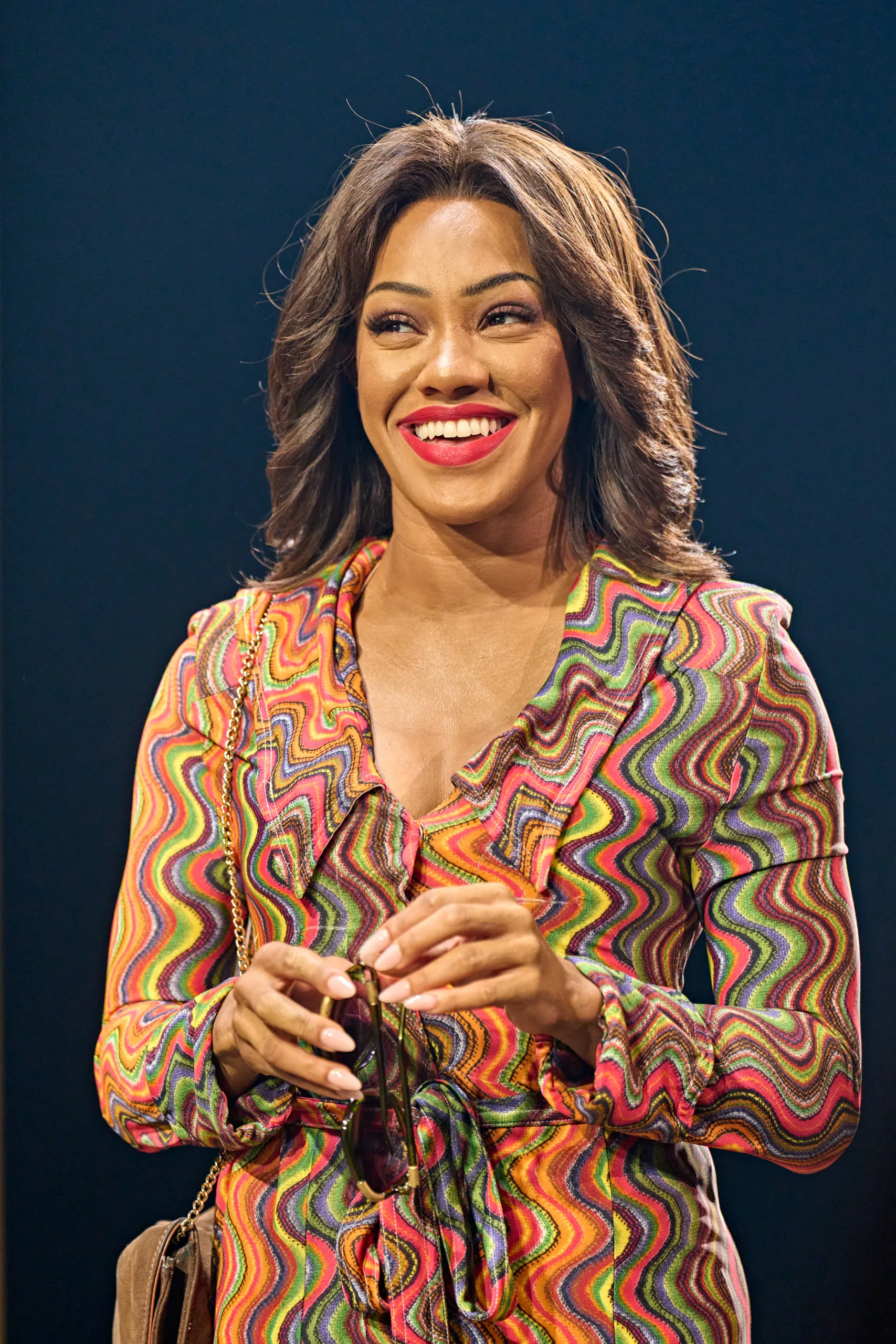
Ellie Bertholf: Wardrobe (Dresser)
As a first job straight out of university, you could do worse than a multi-award-winning West End musical celebrating female empowerment, and Ellie [Surname] feels extremely lucky for the opportunity she’s been given. ‘It’s all been incredible,’ she confides. ‘Telling the story of such a powerful, important, and strong woman, surrounded by more powerful and strong women is truly special.’ Growing up in the US, and acting for fun as a teenager, Ellie quickly realized that centre-stage probably wasn’t where she was best used. Eventually finding her métier in costume, she came to London to study Costume Production at Rose Bruford College, before falling into the scintillating world of one of the most iconically-attired performers in history.
As the dresser for the female ensemble, Ellie is responsible for all the sartorial needs of her performers, which can range from the routine to the unorthodox. ‘Costumes need to be washed,’ Ellie laughs, ‘which people don’t really think about when they go to see a West End show.’ It’s the less glamorous side of things, but absolutely necessary, nonetheless. Every day is laundry day, which lasts for around four hours, then the costumes enter pre-set and are organised for the show ahead. When the lights go down, that’s when the excitement happens, and the stakes begin to build.
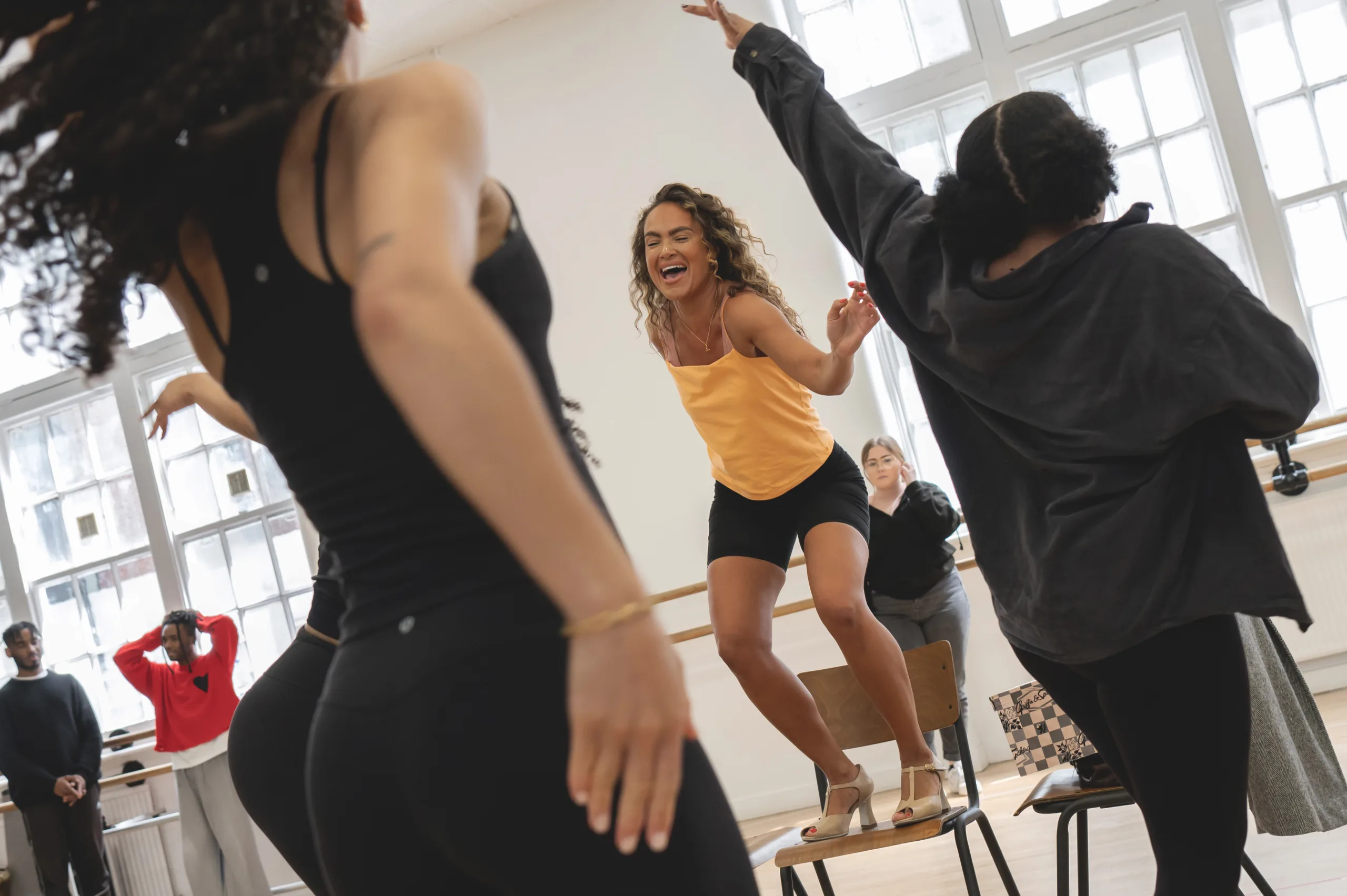
‘Dressing changes are extremely fast,’ Ellie states, ‘Tina only ever leaves the stage to get changed, and each one is executed in under a minute. Should something go wrong during any of those, it would mean a show-stop, because there’s literally no time to fix anything.’ Of course, freak accidents with costume do occasionally happen. In those circumstances, when something breaks completely, or a heel snaps off and the performer needs to be back onstage in twenty seconds, Ellie outlines, ‘it’s a snap-decision whether to put on the next-best-thing in substitute, or quickly stick some safety pins in.’ Adaptability and dynamism are the needle-sharp tools of the Wardrobe Department, which is why it’s impossible to ever get bored. There’s always something different happening.
At only 23, Ellie admits that she was too young to be familiar with Tina Turner at her pinnacle, but the amazing thing about the show is that it has something for everybody. Tina’s music connects, it brings worlds together, and opens up entirely new avenues. ‘A lot of people who come to see this show are also experiencing their first time in a theatre,’ Ellie reveals. ‘Tina was so adamant and passionate about her music, and she continued to be throughout every hardship she faced. That alone invites people in.’ Whether it’s curiosity, appreciation, or just a desire to know more about her, Tina welcomes everybody to listen. Of course, Ellie adds with a grin, ‘if we’re looking for unique selling points, the costumes are great too, in my opinion.’
Eleanor Patterson: Wigs Assistant
If you’re talking about the aesthetics of a show like Tina, then you absolutely have to talk about wigs.
For Eleanor Patterson, The Tina Turner Musical marks a career high and the place she firmly wants to be. ‘This is one of the biggest wig shows in the West End,’ she proclaims, ‘and now seemed like the perfect time to challenge myself, and learn even more skills to add to my set.’ Getting to do that, whilst also telling one of the most powerful stories of personal hardship and artistic triumph in musical history, is a potent mix. It shows what people can come together to create.
A performer throughout her childhood, Eleanor found herself undecided at A-Level. ‘I had no idea what I wanted to do,’ she recalls, ‘so I was looking around different universities and attending multiple open days. Eventually, I came across a course where I could do hair and make-up for film, television, and theatre, and I knew, at some point in my career, I’d like to be in theatre.’ Two incredible years at Buckinghamshire New University followed, igniting an ethos of hard-work and perseverance, which saw Eleanor work on shows such as Jersey Boys, Mamma Mia, and Rock Follies. In theatre, you’re never going to get things handed to you on a plate, she assures, so you have to ardently chase what you want, even through the no’s and no replies.
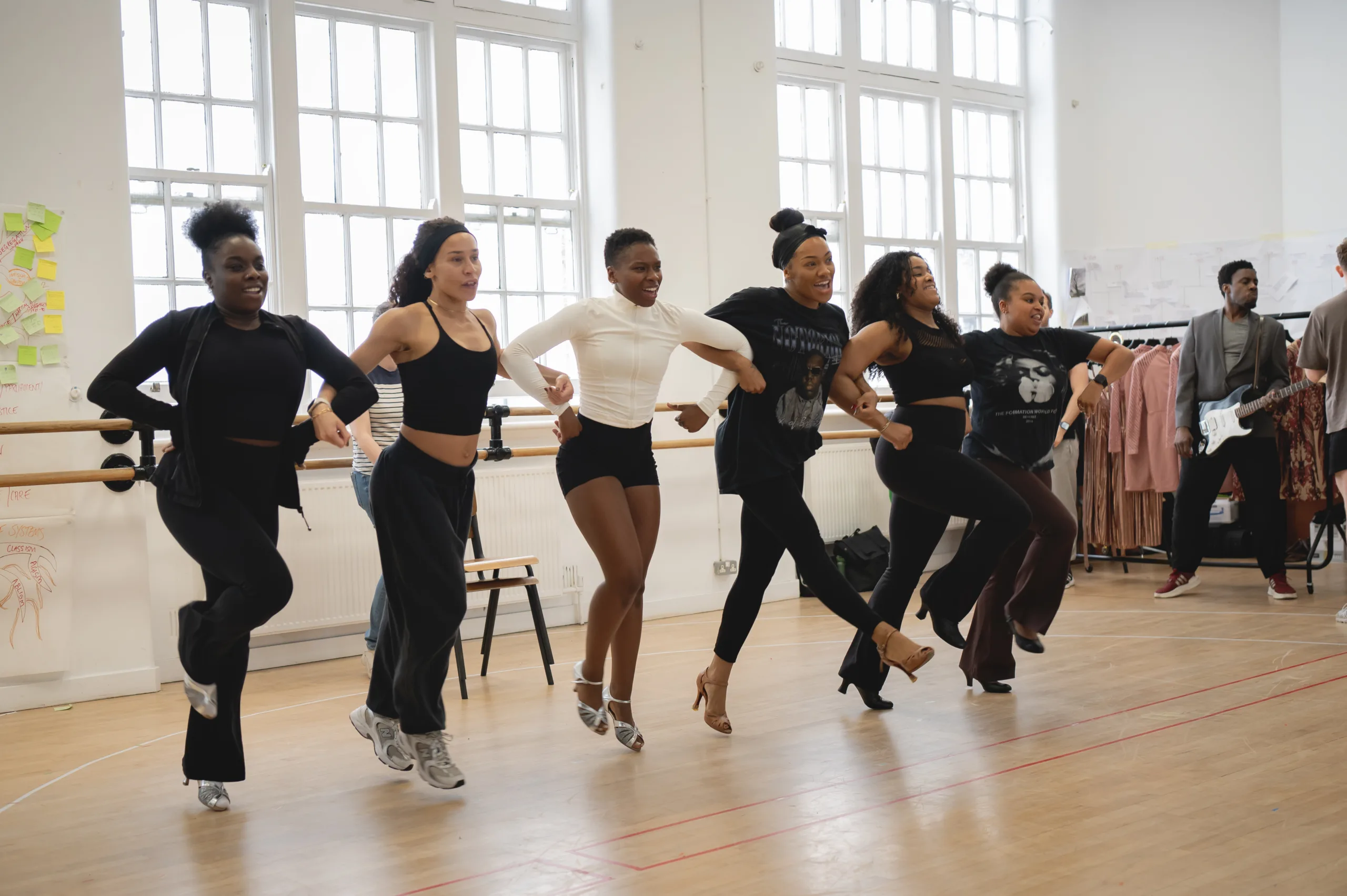
As Wigs Assistant, Eleanor is involved in maintaining the exquisite appearance of the cast, which entails a multi-layered assault of setting, pinning, brushing, and changing – all done from the feverish excitement of the wings. With Tina also being a particularly dance-heavy show, it did raise some interesting challenges for iconic hair. ‘You don’t want a performer to feel like their wig is going to fly off in the middle of the big numbers,’ Eleanor laughs. ‘So learning exactly how people like their wigs to be pinned was a challenge in the beginning, but one of my biggest triumphs now.’ The show speaks for itself when you get it absolutely right.
Reflecting on what Tina means to so many people, Eleanor states that it’s impossible not to be inspired by her story. ‘Her music didn’t just come from nowhere, it was informed by how much she went through as a person. How hard she fought to be Tina Turner: to have her name and sound heard across the globe.’ From her lowest point to her zenith, she refused to surrender, which gives credence to the ‘Simply The Best’ mega-mix at the end of the show. ‘During that time, all the cast and crew are onstage together as a whole,’ Eleanor describes. ‘It’s a complete link from the bottom to the top, and it shows what people can truly do when they come together to make art.’
Rachel Stanwood-Jones: Lighting (Chargehand Electrician)
Your course in life doesn’t have to be defined by a rigid plan, sometimes the discovery of where you’re meant to be is purely accidental. For Rachel [Surname], the cards fell aces-up when a chronic illness diagnosis, and a Chemistry degree, inadvertently steered her towards the stage. ‘My dad got back into amateur dramatics,’ she recalls, ‘and I used to tag along with him, help out with painting some of the sets. I realised I really enjoyed it.’ From a position of trying different things, Rachel found her way into lighting, beginning as a Follow Spot, before graduating to her current role. ‘I just enjoyed learning and experiencing more,’ she admits, ‘my passion for lighting developed without me fully realising it.’ Getting to work on Tina, naturally, was another happy collision of events.
Utilizing the two paragons of problem-solving and creative-thinking, the job of a Chargehand Electrician is to keep everything running optimally, while also looking sensational. ‘Every now and then you have something that goes completely haywire,’ Rachel confides, ‘and you have to balance the best way to handle it, with what will least affect the show. That’s something you can only gain through experience.’ The longer you work on a show, you move from just needing to know how to do your job, to wanting to do it well – and hearing Tina’s story every night, it’s impossible not to feel connected with it, to want to do justice to the retelling.
As well as a technician, you’re also a guardian in one of the most beautiful ways, Rachel discloses. Every show has a Lighting Designer who’s responsible for creating its vision; they make everything happen before handing it over. ‘We’re given the finished piece, and then it’s our job to maintain the show: to keep it looking as phenomenal as the day they designed it new.’ Nothing compares to the first time you watch Tina, it’s simply indescribable, but we’re here to ensure that, no matter how many times you’ve seen it, it’s always powerful to watch. It’s not possible to leave this show without feeling some form of change.
Tina endured more hardship than any one person should have to experience in their lifetime, but it never destroyed her hope, or determination to keep striving for what she wanted. In Rachel’s view, the ultimate triumph of that victory is summed up in the mega-mix at the end of the show, as well as the true meaning and impact of theatre. ‘You see how much the audience is enjoying it,’ she grins, ‘how alive they are in the moment, and no matter how hard your day has been, or how many things have gone wrong, it makes it all worth it. That’s why we’re here. That’s why we do it.’ Theatre is for every single person who is part of it: it’s the breath in your lungs.

